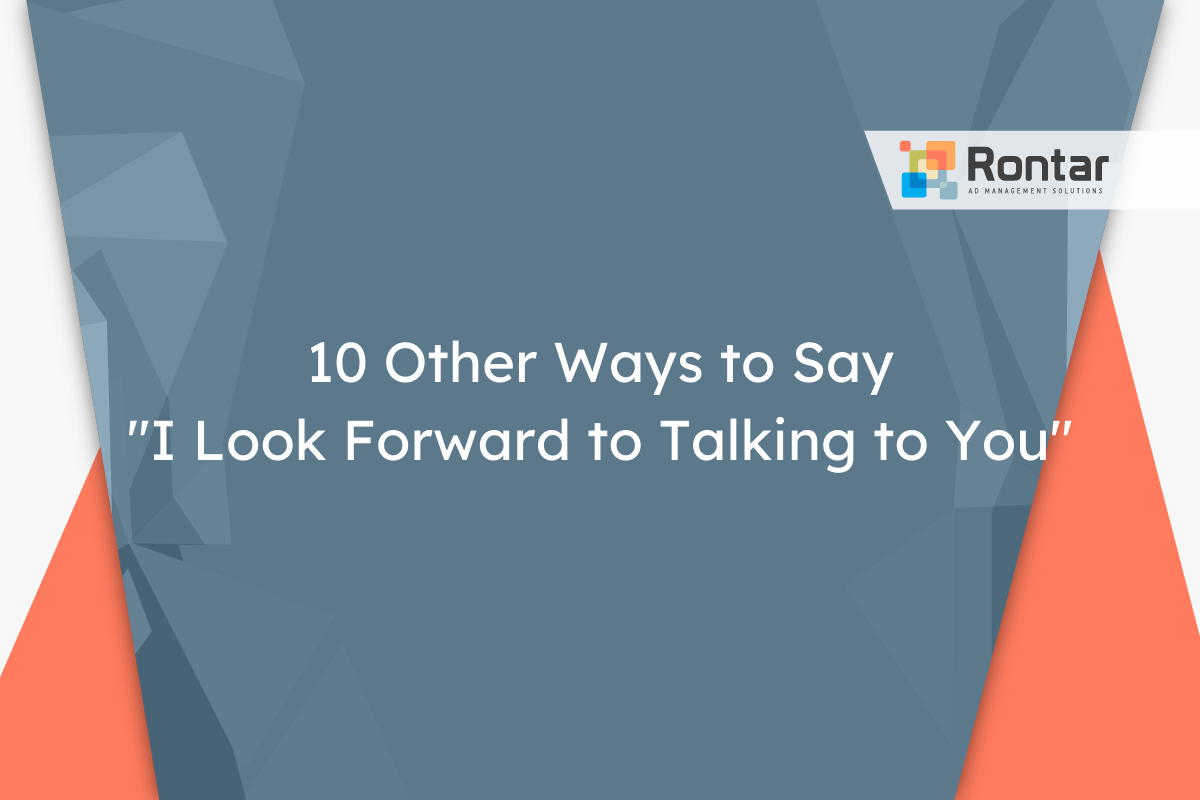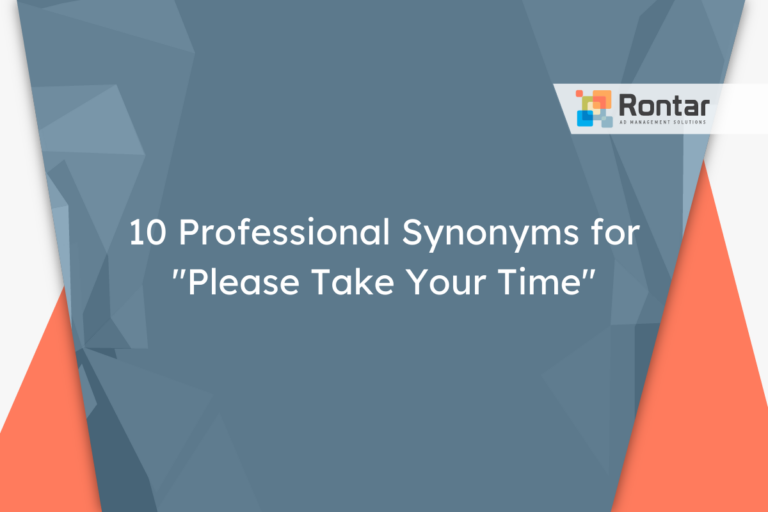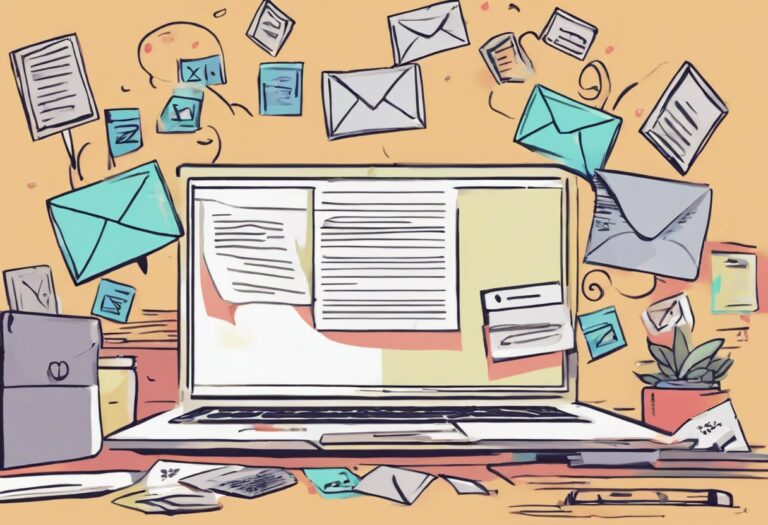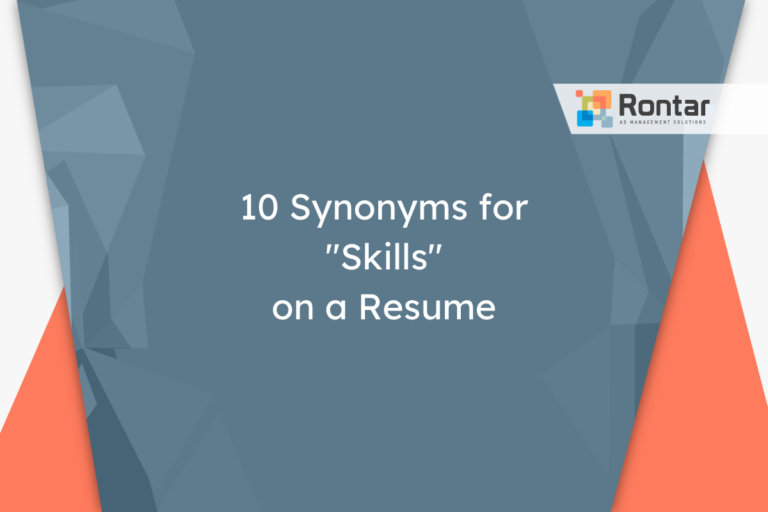10 Other Ways to Say “I Look Forward to Talking to You”

Saying “I look forward to talking to you” is professional and polite, but using the same phrase over and over can get boring.
This article provides ten alternatives to spice up your emails and make your conversations sound more interesting. Each option maintains the original phrase’s professionalism, adjusting the formality to suit different situations and relationships.
Is It Professional to Say “I Look Forward to Talking to You”?
Yes, the phrase “I look forward to talking to you” is considered professional, formal or semi-formal, and polite. This phrase conveys anticipation and interest in a forthcoming conversation, making it an excellent choice for business, academics, and professional settings. Whether you’re corresponding with clients, potential employers, colleagues, or other professionals, this phrase can set a positive tone for your interaction.
It is most commonly used in emails and letters but can also be adapted for use in telephone conversations and work chats.
Email example:
Dear Mr. Thompson,
Thank you for taking the time to discuss the details of the project with me today. I found our conversation very informative and helpful.
I look forward to talking to you again next week to finalize the plans.
Best regards,
Emily Anderson
Let’s look at the pros and cons of this phrase:
Pros:
- It shows enthusiasm and eagerness for the upcoming conversation.
- It sets a professional and polite tone for the interaction.
- It reinforces the idea of continued communication and next steps.
Cons:
- It can be considered overly formal in casual settings or with familiar colleagues.
- It might be overused, making it feel less sincere in some contexts.
While “I look forward to talking to you” is a professional and polite phrase, someone might want to use an alternative to inject variety into their communication or to match the tone more closely with the relationship to the recipient or the context of the message.
10 Other Ways to Say “I Look Forward to Talking to You”
When looking for a synonym or an alternative to refresh your professional emails, consider these ten options:
- Eager to continue our conversation
- Can’t wait to discuss this further
- Excited to explore this together
- Looking forward to our next chat
- Anticipating our upcoming discussion
- Ready to dive deeper into this topic
- Keen to talk more about it
- Anxious to learn more from our conversation
- Hopeful for our next dialogue
- Prepared to further this discussion
1. Eager to continue our conversation
Compared to “I look forward to talking to you,” this alternative sounds a bit more enthusiastic. It shows that you’re not just looking forward to the conversation, but you’re eager to get back to it. This can add a layer of warmth to your professional correspondence.
This phrase is well-suited for situations where you’ve already started a good dialogue and you want to push the conversation forward. It works great in emails with clients or colleagues where ongoing projects or collaborations are discussed. It keeps the tone formal but friendly.
Example:
Dear Ms. Rodriguez,
Thank you for sharing your initial thoughts on the project. Eager to continue our conversation and flesh out more details.
Best,
Mark
2. Can’t wait to discuss this further
This synonym brings an informal touch to the professional environment, perfect for when you’ve built a comfortable rapport with the recipient. It’s slightly more informal but remains polite and shows genuine interest in continuing the conversation.
Best used with colleagues or clients with whom you have an established, friendly relationship. It fits well in emails or messages about collaborative projects or creative brainstorming sessions. This choice keeps the anticipation alive but adds a layer of casual warmth.
Example:
Hello Tom,
Got your points on the new marketing strategy. Can't wait to discuss this further and refine our approach.
Cheers,
Diana
3. Excited to explore this together
This alternative underlines the collaborative aspect of the conversation. It’s a slightly more formal synonym but infuses the message with a sense of partnership and enthusiasm.
It’s particularly appropriate when you’re kicking off new projects or initiatives and want to emphasize teamwork. Suitable for use with new partners, team members, or when you’re addressing someone in a leadership role in written communications, reinforcing the idea of joint exploration.
Example:
Dear Team,
Following our recent brainstorming, excited to explore this together in our next meeting.
Kind regards,
Olivia
4. Looking forward to our next chat
This phrase is a direct synonym with a more casual flair, maintaining professionalism while seeming less stiff. It suggests a friendlier, more approachable mindset, keeping the door open for fruitful discussions.
This works well in a workplace environment where conversations are ongoing, like with a long-term client or a team member you collaborate closely with. It’s particularly effective in digital communication mediums such as emails or professional chat platforms, fostering a spirit of camaraderie.
Example:
Hi Alex,
Many thanks for your insights today. Looking forward to our next chat about the project's next phases.
Warmest,
Jenna
5. Anticipating our upcoming discussion
This alternative is equally formal and polite, showcasing a more refined eagerness towards future exchanges. It captures the original sentiment in a professional manner, ideal for more formal interactions.
It’s suitable for contexts where there’s been preliminary communication setting the stage for a more detailed follow-up. This phrase can be effectively used in communications with senior management, new clients, or experts— where a stronger emphasis on the importance of the forthcoming conversation is desired.
Example:
Dear Dr. Peterson,
I appreciate your preliminary feedback on the research proposal. Anticipating our upcoming discussion to delve deeper into the specifics.
Sincerely,
Henry
6. Ready to dive deeper into this topic
This phrase suggests an eagerness to explore a specific subject in greater detail, making it a professional yet slightly informal alternative. It indicates preparedness and a proactive approach to the conversation.
This alternative is optimal in situations that call for a focused and in-depth analysis, such as project debriefs, strategy sessions, or technical discussions. Suitable for emails to team members, project managers, or specialists where a detailed exploration of a topic is the next step.
Example:
Dear Professor Martin,
Thank you for your insightful comments on my thesis outline. Ready to dive deeper into this topic with your guidance.
Best wishes,
Eleanor
7. Keen to talk more about it
This synonym conveys a strong interest in the subject matter in a professional, yet inviting manner. It’s a bit less formal, making it perfect for less rigid or hierarchical relationships within the workplace.
It is especially fitting for follow-up messages after meetings, workshops, or conferences where you’ve touched upon interesting points that warrant further discussion. Suitable for communicating with peers, mentors, or collaborators in emails or professional networking platforms.
Example:
Hello Jack,
Loved your presentation on sustainable business practices. Keen to talk more about it and see how we can apply these ideas.
Regards,
Sophia
8. Anxious to learn more from our conversation
This phrase emphasizes the learning opportunity the conversation presents. It’s slightly more formal and polite, suitable for expressing a genuine interest in gaining insight from the discussion.
Great for situations where you’re reaching out to someone with expertise or looking to gather feedback on your work. This alternative is particularly effective in emails to mentors, senior colleagues, or industry experts where the focus is on learning and development.
Example:
Dear Maya,
Your recent work on digital transformation has been truly inspiring. Anxious to learn more from our conversation and apply these insights to our strategy.
Best,
Liam
9. Hopeful for our next dialogue
This synonym signals optimism about the future exchange and is professional and polite. It conveys a less urgent, but equally interested tone, making it suitable for communications that are not time-sensitive.
The choice is apt for delayed or long-term projects where you wish to maintain a warm, anticipatory conversation tone. It works well in emails with stakeholders, project leads, or clients where you are awaiting further instructions or decisions.
Example:
Dear Sandra,
Reflecting on our goals for Q4, hopeful for our next dialogue to finalize the action items.
Yours,
Eric
10. Prepared to further this discussion
This phrase emphasizes readiness and a structured approach to continuing the conversation. It’s formal and professional, highlighting a methodical and prepared stance towards the discussion.
Particularly effective for follow-up communications after initial meetings or briefings, where concrete plans or ideas were discussed. It’s suitable for emails to team leaders, project members, or consultants where there’s a need to build on the initial discussion with detailed planning or execution.
Example:
Dear Committee Members,
After reviewing the feedback on our proposal, prepared to further this discussion and refine our approach.
Respectfully,
James
Final Thoughts
Exploring different ways to say “I look forward to talking to you” can make your professional emails stand out and show your enthusiasm in a fresh way. By choosing the right alternative, you can match the tone to the occasion and your relationship with the recipient. It’s also a chance to demonstrate your communication skills and attention to detail.






